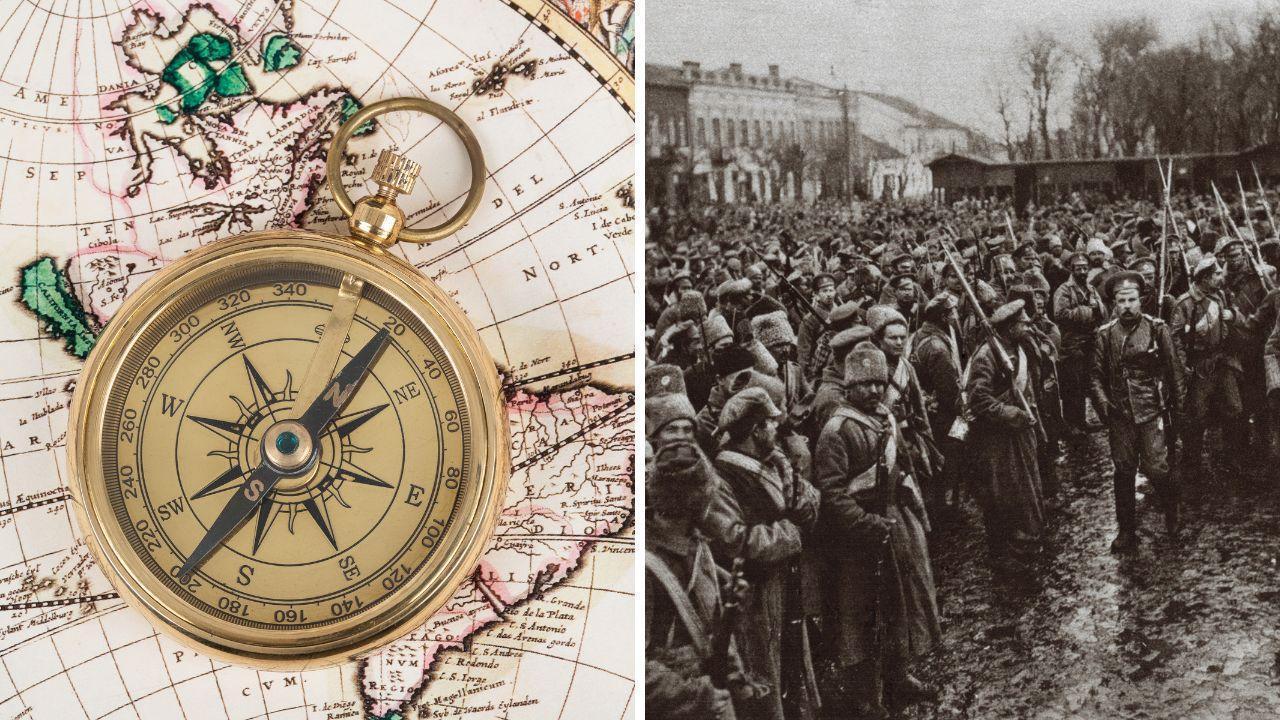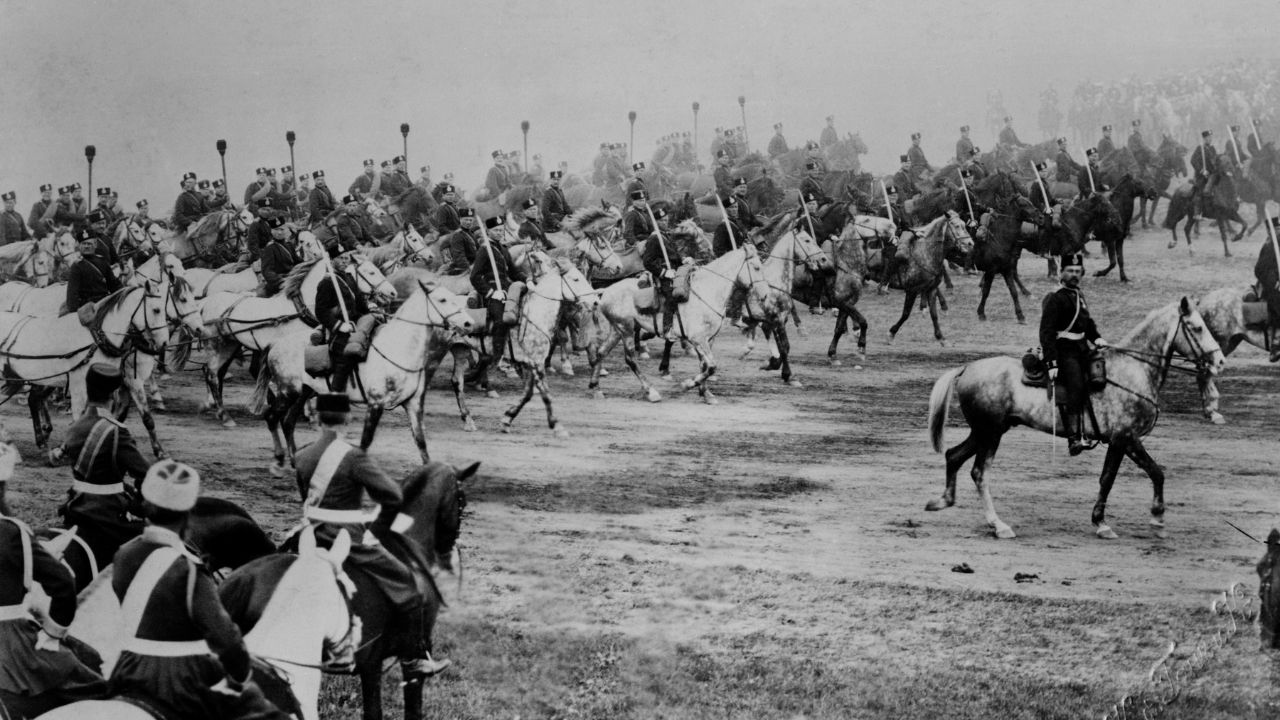
Post by : Zayd Kamal
History is an ever-evolving story of humanity, shaped by countless key events that have left an indelible mark on the world. From the rise and fall of ancient civilizations to the transformative revolutions that changed the course of nations, each pivotal moment in history plays a vital role in the world we know today. Exploring the key events in world history gives us a deeper understanding of how the past continues to influence the present, providing insights into the struggles, triumphs, and cultural shifts that have defined human civilization.
The journey through history begins with some of the earliest civilizations that formed the foundation of human culture. Exploring the key events in world history often starts with the emergence of agriculture in ancient Mesopotamia and Egypt around 10,000 BC. In Mesopotamia, the Sumerians developed the first form of writing, cuneiform, around 3000 BC, enabling the recording of laws, trade, and significant events. Meanwhile, ancient Egypt’s rise along the Nile River brought about advancements in architecture, mathematics, and medicine, most famously seen in the construction of the pyramids, which still stand as a testament to ancient ingenuity.
As civilizations grew, so did the complexity of human society. The Roman Empire, founded in 27 BC, is often regarded as one of the greatest empires in world history. Its influence spread across Europe, Africa, and the Middle East, shaping legal systems, engineering, and even language in the Western world. Similarly, the Persian Empire, with its vast territories stretching from the Mediterranean to India, played a crucial role in spreading culture, trade, and ideas across vast distances. Exploring the key events in world history often highlights these empires for their contributions to governance, infrastructure, and cultural exchange, which laid the groundwork for many modern institutions.
The Middle Ages, which spanned from the 5th to the 15th century, were marked by several defining events that changed the global landscape. One of the most significant events was the rise of Islam in the 7th century, which spread across the Middle East, North Africa, and beyond, shaping the religious, cultural, and political dynamics of these regions. The founding of the Islamic Caliphates marked a new era of knowledge, scientific discovery, and trade, influencing Europe and Asia for centuries to come.
Another monumental event in this period was the fall of Constantinople in 1453, marking the end of the Byzantine Empire and the beginning of the Ottoman Empire’s dominance in southeastern Europe and the Middle East. This event had profound implications on the spread of Christianity and Islam, as well as the geopolitical structure of Europe. Exploring the key events in world history reveals how such transitions in power often reshaped world religions and civilizations.

The 15th and 16th centuries ushered in the Age of Exploration, a period that radically altered the course of world history. Figures such as Christopher Columbus, Vasco da Gama, and Ferdinand Magellan embarked on daring voyages that connected Europe with the Americas, Africa, and Asia. These explorations led to the exchange of goods, ideas, and culture but also resulted in colonization and the exploitation of indigenous peoples across the world. The lasting effects of these events can still be felt in modern-day geopolitics, economics, and cultural exchange.
The establishment of colonial empires, particularly by Spain, Portugal, England, and France, significantly shaped the modern world, introducing new trade routes, religions, and ways of life across continents. However, the dark side of this era, including the Atlantic slave trade and the forced conversion of indigenous peoples, is also a critical part of the history that must be acknowledged when exploring the key events in world history.
The Industrial Revolution, which began in the late 18th century in Britain, brought about profound technological, economic, and social changes. The invention of machines like the steam engine revolutionized manufacturing, transportation, and communication. This period marked the beginning of urbanization, as people moved from rural areas to cities in search of work. Exploring the key events in world history reveals how the Industrial Revolution set the stage for the global economy and the modern technological advancements we rely on today.
However, this rapid industrial growth was not without its challenges. The harsh working conditions, child labor, and environmental damage caused by industrialization sparked social movements that led to significant political changes, including labor rights and the expansion of suffrage.
Perhaps no events in world history have had as much impact as the two World Wars. World War I (1914-1918) reshaped the geopolitical landscape, leading to the downfall of empires like Austria-Hungary, the Ottoman Empire, and Tsarist Russia. The Treaty of Versailles in 1919, which ended the war, set the stage for World War II by placing severe reparations on Germany, fueling economic hardship and resentment.
World War II (1939-1945) was even more catastrophic, involving most of the world’s nations and leading to the deaths of millions of people. The war's aftermath resulted in the formation of the United Nations, a body dedicated to maintaining peace and preventing future conflicts. The devastation of the war also paved the way for the Cold War, as the United States and the Soviet Union emerged as superpowers, leading to a decades-long period of tension and competition.
In the mid-20th century, exploring the key events in world history brings us to the powerful civil rights movements that arose in many parts of the world. In the United States, leaders like Martin Luther King Jr. and Rosa Parks challenged systemic racism and fought for equal rights for African Americans. Similarly, the fight for independence in countries like India, led by figures such as Mahatma Gandhi, helped bring an end to British colonial rule.
These movements ignited social change globally, inspiring subsequent struggles for equality, freedom, and justice in other nations. From the anti-apartheid movement in South Africa to the feminist and LGBTQ+ rights movements, the second half of the 20th century saw a global shift toward greater human rights and social justice.
Exploring the key events in world history helps us understand how important moments from the past shaped the world we live in today. Exploring the key events in world history begins with the early civilizations like Egypt and Mesopotamia, where people first learned to write and build great structures. Exploring the key events in world history also shows how powerful empires like Rome and Persia changed the way people lived and traded. The rise of Islam and the fall of Constantinople are key events in world history, as are the great explorers who sailed across the oceans, connecting different parts of the world. Exploring the key events in world history also means learning about the Industrial Revolution, which helped create modern factories and cities. The two World Wars were huge events that changed the world forever, and the fight for civil rights in the 20th century has made the world fairer for everyone. By exploring the key events in world history, we can understand how we got to where we are today and how these events still influence our lives.
Disclaimer: This summary is brought to you by dxb news network.
Key events in world history, ancient civilizations, rise of empires, industrial revolution, world wars, civil rights movements, explorers, cultural shifts, geopolitical changes, historical influence, modern societies, global impact, social change, historical significance, political movements

Winter Skin Care: 10 Hydrating Drinks That Give Natural Glass Skin Glow
Learn how simple winter drinks keep your skin hydrated reduce dryness and support a natural glass sk

10 Songs That Carry the Same Grit and Realness as Banda Kaam Ka by Chaar Diwari
From underground hip hop to introspective rap here are ten songs that carry the same gritty realisti

PPG and JAFZA Launch Major Tree-Planting Drive for Sustainability
PPG teams up with JAFZA to plant 500 native trees, enhancing green spaces, biodiversity, and air qua

Dubai Welcomes Russia’s Largest Plastic Surgery Team
Russia’s largest plastic surgery team launches a new hub at Fayy Health, bringing world-class aesthe

The Art of Negotiation
Negotiation is more than deal making. It is a life skill that shapes business success leadership dec

Hong Kong Dragon Boat Challenge 2026 Makes Global Debut in Dubai
Dubai successfully hosted the world’s first Hong Kong dragon boat races of 2026, blending sport, cul

Ghanem Launches Regulated Fractional Property Ownership in KSA
Ghanem introduces regulated fractional real estate ownership in Saudi Arabia under REGA Sandbox, ena

Winter Skin Care: 10 Hydrating Drinks That Give Natural Glass Skin Glow
Learn how simple winter drinks keep your skin hydrated reduce dryness and support a natural glass sk

Why Drinking Soaked Chia Seeds Water With Lemon and Honey Before Breakfast Matters
Drinking soaked chia seeds water with lemon and honey before breakfast may support digestion hydrati

Morning Walk vs Evening Walk: Which Helps You Lose More Weight?
Morning or evening walk Learn how both help with weight loss and which walking time suits your body

What Really Happens When You Drink Lemon Turmeric Water Daily
Discover what happens to your body when you drink lemon turmeric water daily including digestion imm

DXB News Network Presents “Ctrl+Alt+Wim”, A Bold New Satirical Series Starring Global Entertainer Wim Hoste
DXB News Network premieres Ctrl+Alt+Wim, a bold new satirical micro‑series starring global entertain

High Heart Rate? 10 Common Causes and 10 Natural Ways to Lower It
Learn why heart rate rises and how to lower it naturally with simple habits healthy food calm routin

10 Simple Natural Remedies That Bring Out Your Skin’s Natural Glow
Discover simple natural remedies for glowing skin Easy daily habits clean care and healthy living ti

Mattel Revamps Masters of the Universe Action Figures for Upcoming Film
Mattel is set to revive Masters of the Universe action figures in sync with their new movie, ignitin